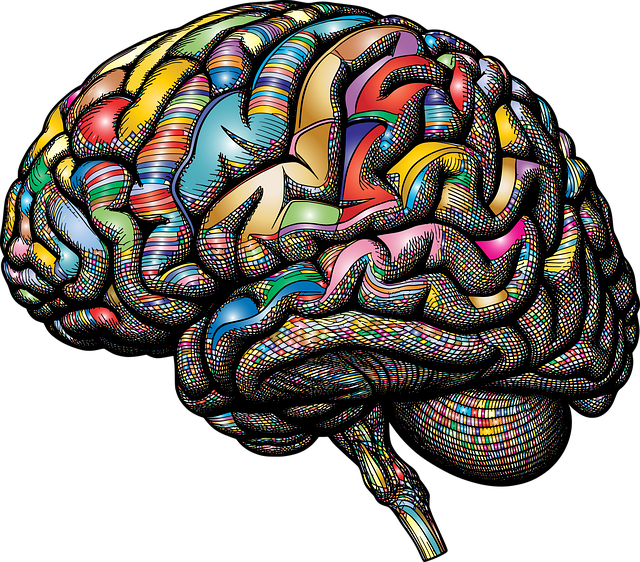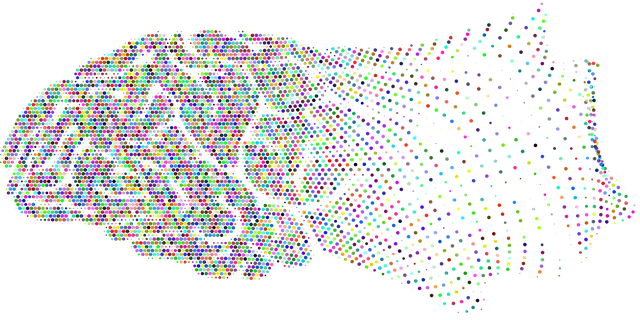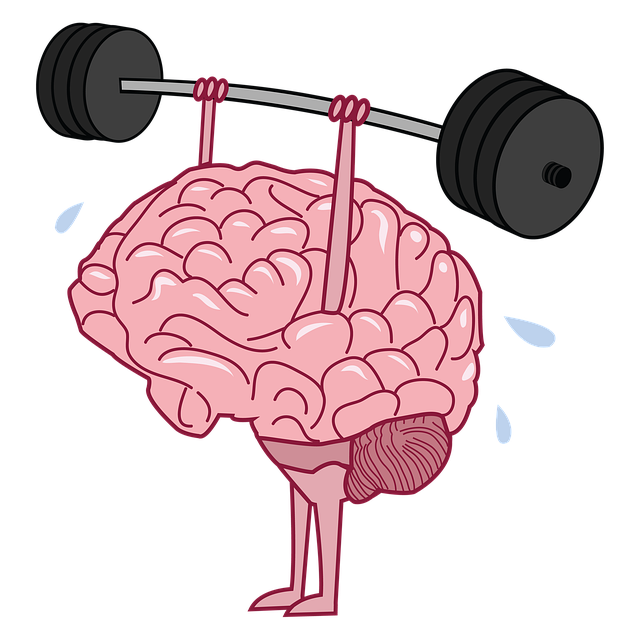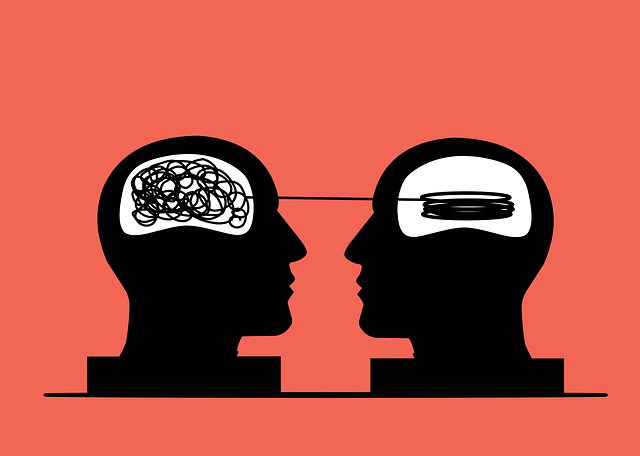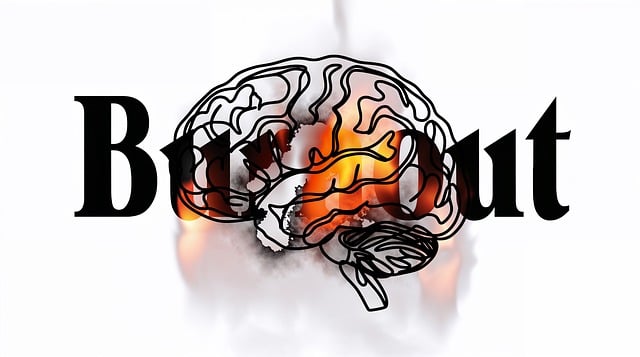Westminster Acceptance and Commitment Therapy (ACT) offers a comprehensive approach to social skills training for individuals with mental health conditions, integrating cultural sensitivity and positive thinking. By fostering psychological flexibility, empathy, and effective communication, ACT enhances coping mechanisms, self-esteem, and relationship building. Tailored programs utilizing role-playing and group discussions significantly improve social skills, reduce stigma, and promote community support for better mental wellness outcomes.
Social skills training is a powerful tool for managing mental health conditions, offering a holistic approach to patient care. This article explores the intricate relationship between social skills and mental well-being, with a focus on Acceptance and Commitment Therapy (ACT) as a groundbreaking treatment method. We delve into identifying social challenges specific to various mental health disorders and present practical strategies to enhance communication, emotional regulation, and relationship building. For healthcare providers in Westminster, integrating social skills training into treatment plans can significantly improve patient outcomes.
- Understanding the Link Between Social Skills and Mental Health
- The Role of Acceptance and Commitment Therapy (ACT) in Social Skills Training
- Identifying Challenges: Assessing Social Functioning in Mental Health Conditions
- Practical Strategies for Enhancing Social Skills
- – Communication Techniques
Understanding the Link Between Social Skills and Mental Health

In today’s world, where mental health conditions are increasingly common, understanding the intricate link between social skills and psychological well-being is paramount. The interplay between these two aspects is a crucial element in the journey towards recovery and improved quality of life. Westminster Acceptance and Commitment Therapy (ACT) recognizes this relationship, emphasizing that effective communication and social interaction can significantly impact an individual’s mental health trajectory.
Social skills training, when integrated into therapeutic practices, becomes a powerful tool for fostering resilience and coping mechanisms. By addressing communication barriers and enhancing interpersonal connections, individuals with mental health challenges can experience improved self-esteem, reduced anxiety in social settings, and better overall functioning. Moreover, cultural sensitivity in mental healthcare practice plays a pivotal role in this process, ensuring that diverse populations receive tailored support that respects their unique backgrounds and experiences. Encouraging positive thinking and confidence-boosting strategies within these training programs further enables individuals to navigate social situations with greater ease and confidence.
The Role of Acceptance and Commitment Therapy (ACT) in Social Skills Training

Acceptance and Commitment Therapy (ACT) has emerged as a powerful approach within social skills training, particularly beneficial for individuals managing mental health conditions. This therapy encourages clients to develop psychological flexibility, fostering their ability to accept negative thoughts and emotions while committing to actions aligned with personal values. In the context of social interactions, ACT helps individuals navigate challenging conversations, manage anxiety in social settings, and enhance overall communication effectiveness.
By integrating compassion cultivation practices, ACT promotes self-acceptance and empathy towards others, which is crucial for building healthy relationships. This therapeutic approach also incorporates burnout prevention strategies, recognizing the significant impact on mental wellness coaches and healthcare providers who support individuals with mental health conditions. Through comprehensive training programs that include ACT techniques, professionals can enhance their coaching skills, enabling them to guide clients toward improved social skills and better mental wellness outcomes, as evidenced in various studies focusing on Compassion Cultivation Practices and Mental Wellness Coaching Programs Development.
Identifying Challenges: Assessing Social Functioning in Mental Health Conditions

In many cases, individuals with mental health conditions face significant challenges when it comes to social functioning. This can range from difficulties in forming and maintaining relationships to struggles with communication and conflict resolution. Assessing these challenges is a crucial step in effective support and treatment planning. Mental health professionals use various tools to evaluate social skills, including clinical interviews and standardized assessments that tap into areas such as social interaction, emotional regulation, and coping strategies. Understanding an individual’s current social functioning helps tailor interventions, ensuring they meet their unique needs.
One evidence-based approach that proves beneficial is Acceptance and Commitment Therapy (ACT), which has been integrated into mental health education programs design. By focusing on psychological flexibility and values-driven behavior, ACT empowers individuals to navigate social situations more effectively. Additionally, teaching conflict resolution techniques within these programs can significantly enhance their ability to manage interpersonal challenges. For instance, learning healthy communication strategies can help reduce symptoms of depression prevention, fostering more supportive relationships.
Practical Strategies for Enhancing Social Skills

Social skills training plays a pivotal role in managing mental health conditions, offering practical strategies for individuals to navigate and thrive in social environments. At the heart of this approach lies Acceptance and Commitment Therapy (ACT), a evidence-based practice that encourages individuals to accept their emotions while pursuing valued actions. In the context of Westminster Acceptance and Commitment Therapy, clients are guided to identify and challenge limiting beliefs, fostering a more flexible and adaptive mindset.
Beyond individual therapy, Crisis Intervention Guidance and Stress Management Workshops organized by mental health organizations equip individuals with immediate coping mechanisms. These interactive sessions teach practical skills for de-escalating stressful situations, managing anxiety, and cultivating positive social interactions. Simultaneously, Mental Illness Stigma Reduction Efforts focus on promoting understanding and empathy, breaking down barriers and fostering supportive communities where individuals feel seen, heard, and valued.
– Communication Techniques

Social skills training plays a pivotal role in managing mental health conditions, offering individuals practical tools for effective communication and interaction with others. Techniques such as active listening, assertiveness training, and non-verbal cues are integral to this process, helping to navigate social situations with confidence and ease. At the heart of these strategies lies Westminster Acceptance and Commitment Therapy (ACT), which encourages acceptance of emotions while promoting positive actions towards valued goals.
Designed with an emphasis on individual needs, Mental Health Education Programs focus on fostering self-awareness and empathy, skills crucial for building supportive relationships. This approach is especially beneficial in addressing social anxiety or introversion, common mental health challenges. By participating in role-playing exercises and group discussions, individuals gain a deeper understanding of their communication style and learn to adapt effectively, thereby enhancing overall Mental Health Awareness and Trauma Support Services within the community.
Social skills training, particularly using evidence-based approaches like Acceptance and Commitment Therapy (ACT), plays a pivotal role in managing mental health conditions. By understanding the connection between social skills and mental well-being, individuals can navigate interpersonal challenges more effectively. Assessment tools tailored to various mental health conditions help identify specific skill gaps, while practical strategies such as communication techniques empower individuals to foster meaningful connections. Integrating these approaches, like those offered through Westminster Acceptance and Commitment Therapy, can significantly enhance social functioning and overall quality of life for those navigating mental health issues.

